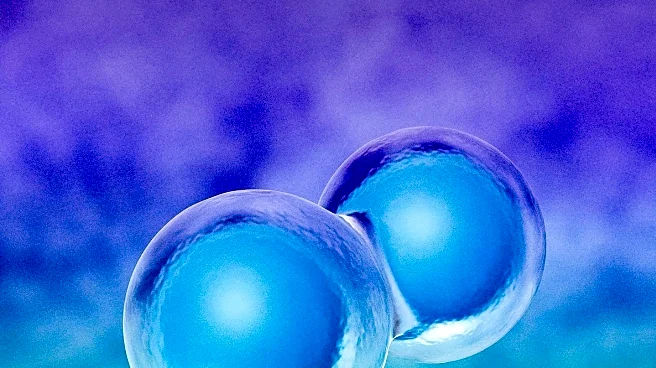What's Happening?
Recent research conducted by the Wellcome Sanger Institute and King's College London has uncovered that as men age, their sperm accumulates potentially harmful DNA mutations. This study utilized a high-resolution
analysis technique called NanoSeq to examine sperm samples from men aged 24 to 75. The findings indicate that mutations occur at higher rates in older men, with some mutations being 'selfish,' providing a growth advantage to the cells that carry them. These mutations have been linked to developmental disorders and cancers. The study analyzed 81 sperm samples from 57 healthy men, including twins, to differentiate the effects of age from inherited genetics. The research found that around 2% of sperm from men in their 30s carried disease-causing mutations, increasing to 3-5% in middle-aged and older men. By age 70, an average of 4.5% of sperm had potentially harmful mutations.
Why It's Important?
The study's findings have significant implications for public health and genetic counseling. As men age, the increased likelihood of passing on harmful mutations to offspring could impact the prevalence of genetic disorders in future generations. This research highlights the importance of understanding the genetic risks associated with paternal age, which could influence reproductive decisions and healthcare policies. The identification of specific genes affected by these mutations can aid in future research linking them to particular disease risks, potentially leading to targeted interventions or therapies. The study also provides insights into the male germline, where natural selection can favor harmful mutations, affecting the genetic material passed to the next generation.
What's Next?
Further research is needed to determine how these mutations affect the health of offspring and to explore potential interventions. Genetic counseling may become more prevalent for older prospective fathers to assess risks and make informed reproductive choices. The study's findings could lead to advancements in understanding the mechanisms of mutation accumulation and its impact on human health, potentially influencing public health strategies and policies regarding paternal age and reproduction.
Beyond the Headlines
The research sheds light on the dynamic environment of the male germline, where natural selection can favor harmful mutations. This understanding could lead to ethical discussions about reproductive choices and the potential societal implications of increased paternal age. The study also raises questions about the balance between natural selection and genetic health, prompting further exploration of how these processes interact and affect human evolution.









